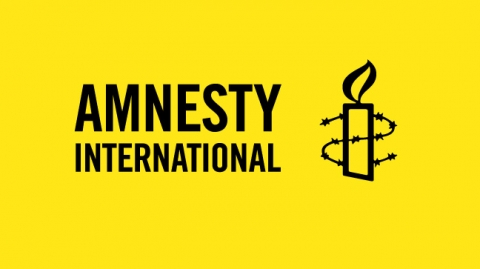Amnesty International welcomes the verdict of the Yavan District Court, Khatlon region which
found a police inspector (of the Department of Internal Affairs) guilty of torture (under Article
143.1 of the Criminal Code of Tajikistan). The police inspector was sentenced to seven
years imprisonment for torturing and ill-treating a 17 year old boy (whose name is known to
Amnesty International) on 27 April 2012.
This is the first time an official has been charged with the crime of torture since the Article
on Torture in line with international legal standards was introduced into the Criminal Code
of Tajikistan in March of this year. In another first for Tajikistan, the victim was awarded
adequate compensation: material damages of 1, 619 Tajikistani Somoni to cover the cost of
his medical treatment.
On 27 April the 17-year-old boy was detained on suspicion of theft by a police officer in
Yavan, Khatlon region and questioned without a lawyer in the police duty office in Yavan.
He was allegedly beaten in order to make him confess. On 28 April he was recalled to the
police station where the beatings allegedly continued. The boy did not tell anyone about his
ill-treatment but on 29 April he attempted suicide. He survived and was taken to hospital. A
medical expertise was carried out on 30 April and a forensic examination was carried out on
28 May which found evidence that serious bodily injuries had been inflicted on him.
The police inspector was also found guilty under Article 316 “exceeding official authority”. He
was banned from working in the structures of the Ministry of Internal Affairs for a period of five
years.
17 complaints of torture and other ill-treatment have been lodged with the General
Procurator’s office in the first six months of 2012, according to a statement made by the
Deputy General Prosecutor Habibullo Vokhidov, on 23 July. Six of these complaints were
confirmed and criminal investigations have been opened, although only one under Article
143.1, torture. The five other cases relate to incidents that took place before the changes
to the criminal code were introduced and the security service officers involved are therefore
being prosecuted under Article 316, “exceeding official authority”.
Amnesty International welcomes this verdict as a positive sign that the authorities of Tajikistan
are serious about putting an end to entrenched practices of torture.
However, the organisation continues to receive reports of cases where people are tortured
and otherwise ill-treated to get them to confess to crimes. Of particular concern is the lack
of routine access to a lawyer while in pre-trial detention. By law, detainees are entitled to
a lawyer as soon as they are detained, but, in practice lawyers are at the mercy of police
investigators who can deny them access for many days. During this period of incommunicado
detention, the risk of torture and other ill-treatment is particularly high. Amnesty International’s
research indicates that torture and other ill-treatment are particularly prevalent in cases of
people detained on charges relating to national security.
Amnesty International urges the Tajikistani authorities to ensure that prompt, independent and
thorough investigations are conducted into all cases of alleged torture or other ill-treatment.
